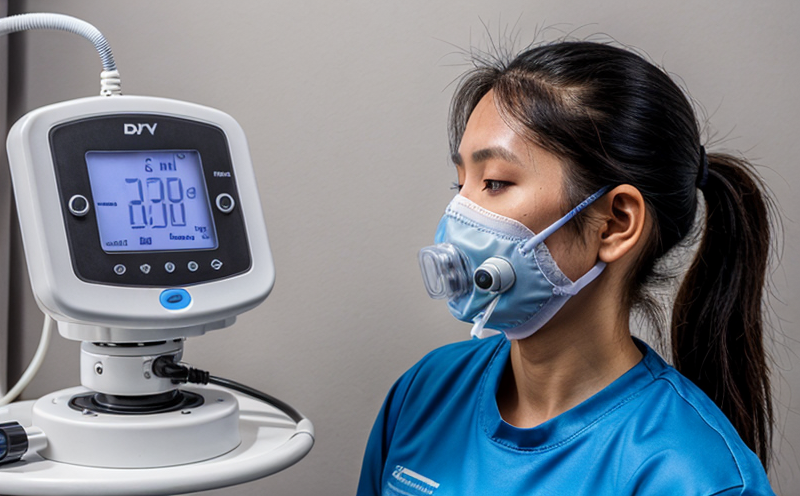ISO 5366 Tracheostomy Tube Reusability Testing
The ISO 5366 standard provides a comprehensive framework for evaluating the reusability of tracheostomy tubes, ensuring they meet stringent quality and safety standards. This testing is critical in healthcare settings where reusable devices are used to minimize costs while maintaining patient safety.
Reusability testing under ISO 5366 involves multiple stages designed to assess the mechanical integrity, biocompatibility, and overall durability of tracheostomy tubes after repeated use cycles. The process begins with the selection of appropriate specimens that represent real-world usage conditions. These specimens are subjected to a series of tests aimed at evaluating their performance across various parameters.
One key aspect is the mechanical testing, which includes assessing the tensile strength and flexibility of the tube under simulated use conditions. This ensures that even after multiple uses, the tracheostomy tubes remain functional without compromising patient safety. Another crucial test involves microbiological compatibility checks to ensure that the device does not introduce pathogens into the patient's airway.
Hydrophilicity and hydrophobicity tests are also conducted to evaluate how the tube interacts with fluids, which is essential for preventing blockages and ensuring proper airflow during ventilation. The testing process may further include wear and tear assessments to understand long-term performance under typical usage scenarios.
The results of these tests are meticulously documented and compared against specified acceptance criteria outlined in ISO 5366. Compliance with these standards is crucial for manufacturers seeking to ensure their products meet international quality benchmarks, thus gaining market access and trust from healthcare providers.
By adhering strictly to the protocols defined by ISO 5366, laboratories can provide reliable and accurate reusability assessments that contribute significantly to the broader goals of cost-effective patient care in hospitals and clinics. This not only enhances operational efficiency but also supports better health outcomes through safer, more durable medical devices.
In summary, ISO 5366 testing is a vital process for ensuring the quality and safety of tracheostomy tubes used across various healthcare settings. It plays an integral role in maintaining high standards of patient care by validating the reusability characteristics that are essential for effective ventilation support.
Benefits
The ISO 5366 Tracheostomy Tube Reusability Testing service offers numerous benefits to medical device manufacturers, healthcare providers, and regulatory bodies. Firstly, it ensures compliance with international standards, thereby facilitating market access in global markets that adhere to these guidelines.
Secondly, by providing detailed reports on the reusability of tracheostomy tubes, this testing helps manufacturers improve product design and manufacturing processes continuously. This continuous improvement cycle is crucial for staying ahead in a competitive industry where quality standards are constantly evolving.
Healthcare providers benefit from cost savings associated with reusable medical devices while still maintaining high levels of patient safety and care quality. This service also enhances the reputation of healthcare institutions by demonstrating their commitment to using only the highest quality, safest equipment.
In terms of regulatory bodies, ISO 5366 testing offers a reliable method for enforcing compliance with international standards. It helps in maintaining consistent quality across products from different manufacturers, ensuring that all devices meet stringent safety and performance criteria.
The overall impact is improved patient outcomes through the use of safe, effective, and cost-effective medical devices. This service supports sustainable healthcare practices by promoting the reuse of valuable resources while ensuring they remain safe for extended use cycles.
Industry Applications
The ISO 5366 Tracheostomy Tube Reusability Testing is widely applicable in various sectors within the medical device industry. Hospitals and clinics that rely heavily on tracheostomy tubes for patient care are prime beneficiaries of this testing service.
Manufacturers of these devices must ensure their products meet rigorous standards to gain acceptance from regulatory bodies worldwide. This testing helps them achieve compliance with ISO 5366, which is mandatory in many countries and regions.
In addition to hospitals and clinics, home healthcare providers also use this service. The reusability of tracheostomy tubes can significantly reduce the cost burden on patients without compromising on safety or effectiveness.
Regulatory agencies like the U.S. Food and Drug Administration (FDA) and European Medicines Agency (EMA) require such testing to ensure that medical devices are safe, effective, and meet quality standards. This service supports these regulatory bodies in their efforts to maintain high standards across the industry.
Customer Impact and Satisfaction
The implementation of ISO 5366 Tracheostomy Tube Reusability Testing has a profound impact on customers, particularly healthcare providers. By ensuring that reused tracheostomy tubes meet strict quality standards, this service significantly enhances patient safety and care.
Patients benefit directly from the cost savings associated with reusable medical devices without sacrificing quality or safety. This is especially important for those who require prolonged use of such devices due to medical conditions or treatments.
Healthcare providers appreciate the peace of mind that comes from using tested and approved devices, which reduces the risk of complications and infections. This testing also supports better resource management by extending the lifecycle of valuable equipment without compromising on performance.
The overall satisfaction among customers is high as they see tangible improvements in both quality and affordability of healthcare services. The assurance that these devices meet international standards adds to their trust in medical institutions, leading to enhanced patient experience and care.





